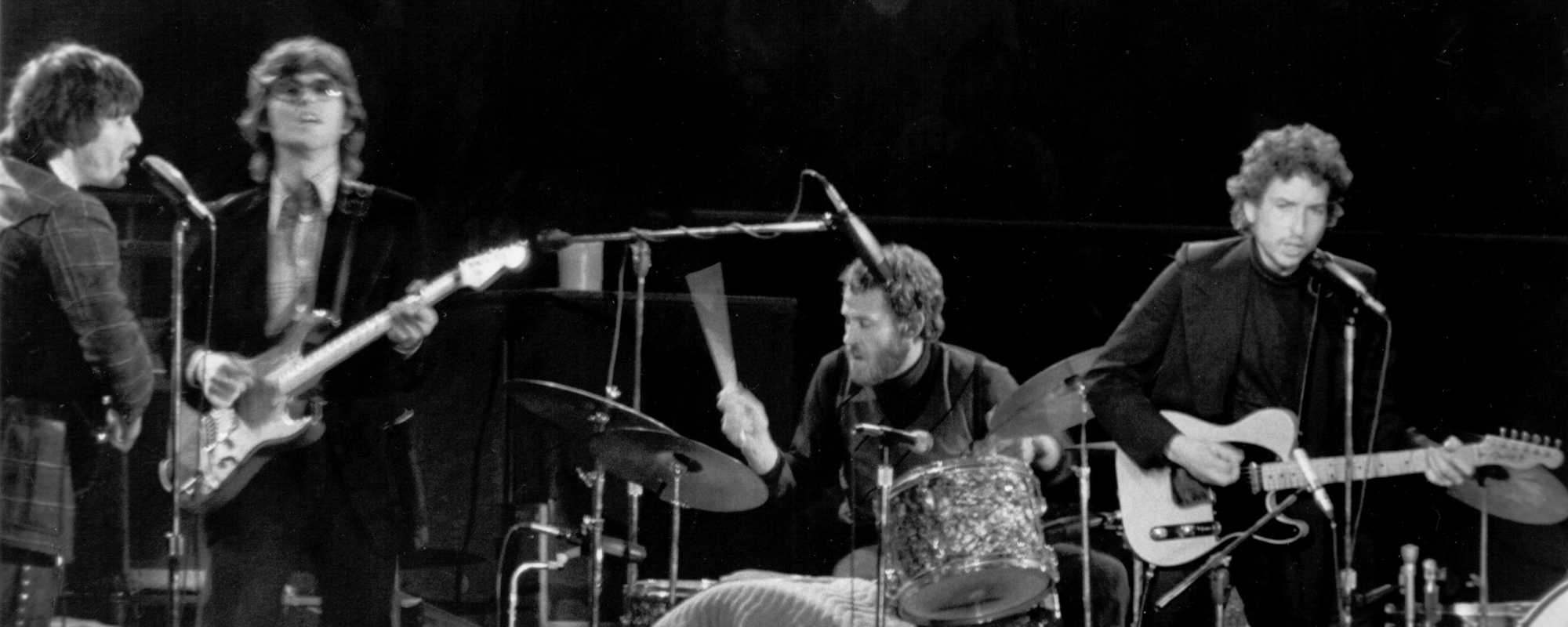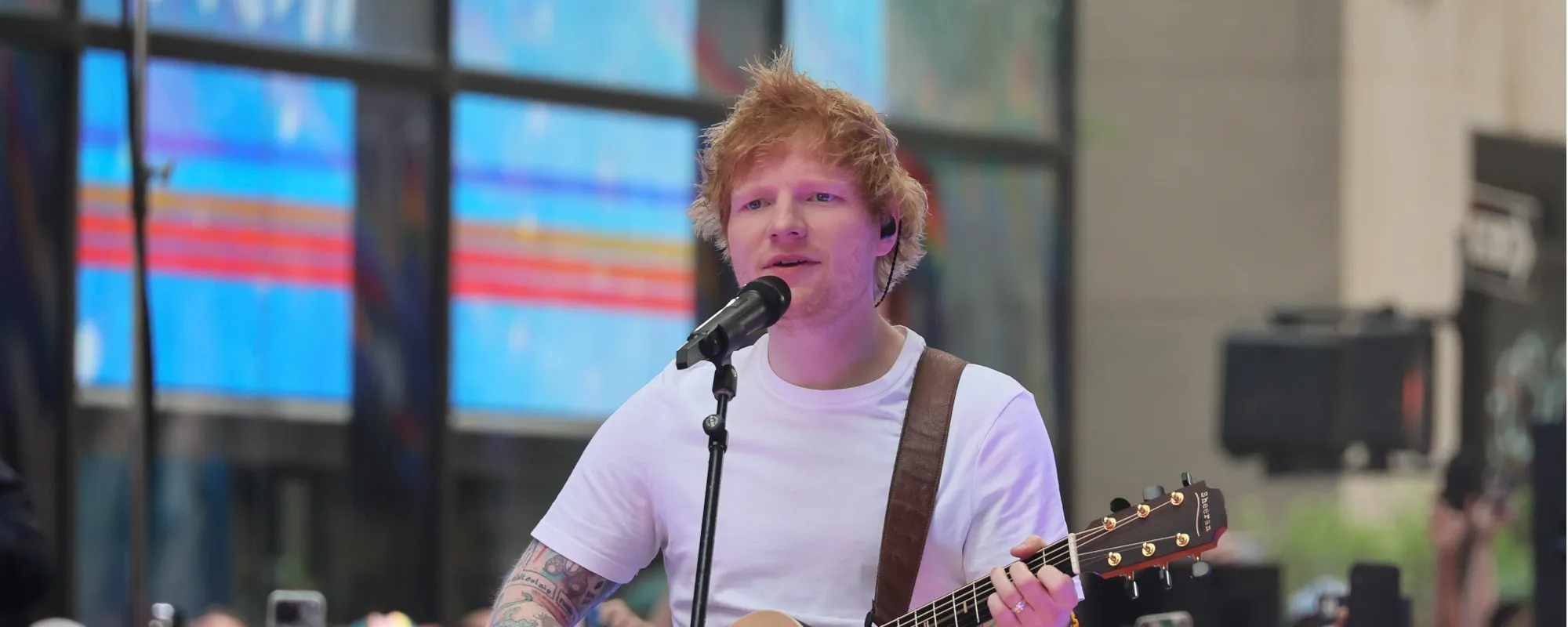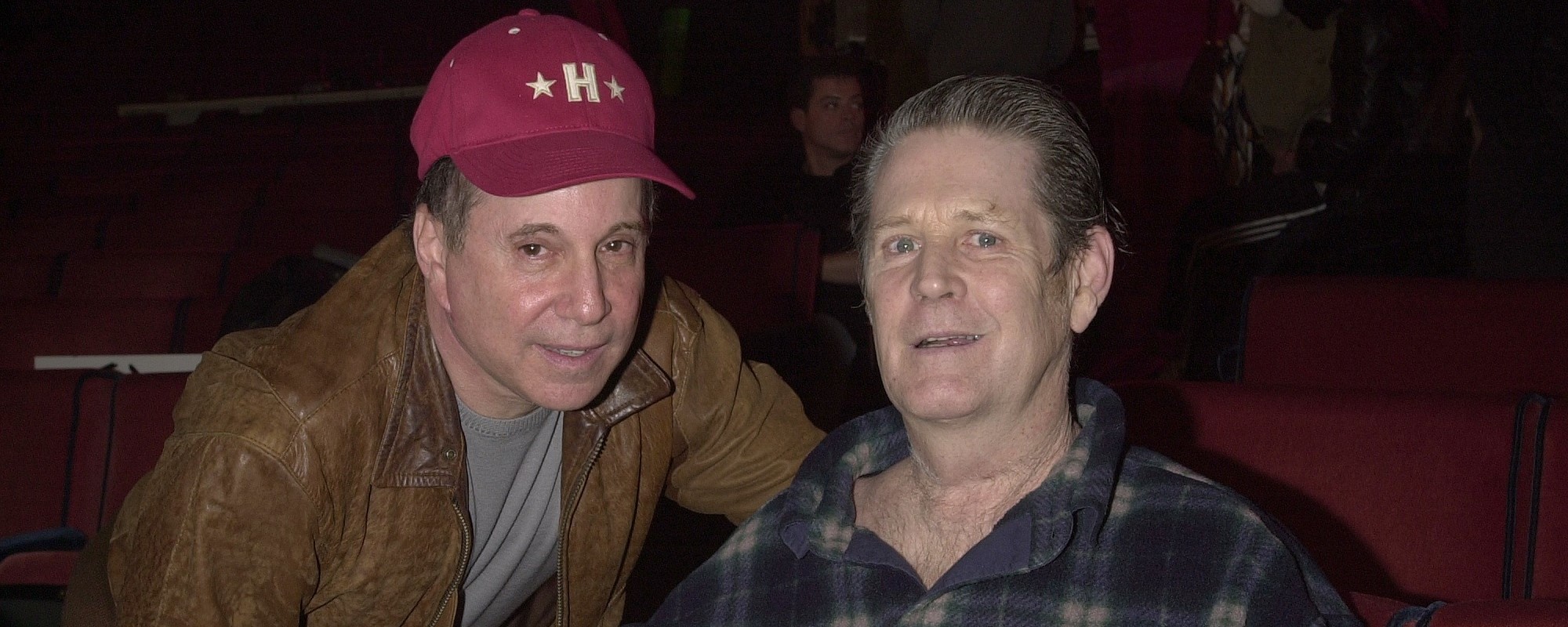Back when Grace Potter wrote the songs for Medicine around 2007, she was a different songwriter. She was, admittedly, “a young pup, just learning the craft.”
Videos by American Songwriter
The record, produced by T. Bone Burnett in 2008, was shelved, and many of the songs were re-recorded with Mark Batson at the helm and released as the album Grace Potter and the Nocturnals in 2010. Now, Hollywood Records has reached into the vault and will be delivering this gem on May 30. For Potter, it’s not only a full circle moment but a crystallizing moment because the songwriting resonates with the “pup” who has finally grown into her feet.
“And they’re not 4 1/2 inch stilettos anymore,” Potter tells American Songwriter with a laugh.
Looking back now, Potter confesses she was somewhat removed from the songs she was writing. They were as if they were emanating from her 40-year-old self, but she had no idea at the time.
“I was very prolific at being an older, wiser woman than I really was. Everybody always said I had this precocious, timeless style of songwriting, and it’s because Bonnie Raitt was singing like a woman who was in her mid-40s and had been through millions of heartbreaks. Taj Mahal was talking about his travels around the world in the many moons of these women that he’d fallen for. All these feelings that I needed to have that I had never actually experienced myself were very easy for me to tap into because it was like I was playing a character,” Potter says, adding that her lyrics became much more authentic with age.

Looking at the songwriting on Medicine, Potter says they are mostly from a character standpoint, except “Medicine” and “Low Road,” which are two very honest songs. “They truly feel like it’s a wise person, some self, that’s looking back at her life going, ‘Oh, the things you’re gonna know later, don’t worry, you’re gonna figure it out.’ ‘Medicine,’ especially, is a song about a woman who’s all-knowing and all-wise, or at least pretending to be—she’s probably a charlatan,” Potter says. “And I, as some settled, rooted townswoman, am looking at this character, this court jester coming into town wooing everyone, who is also me. And it was an incredibly prophetic song. I realize now how much of that song had resonated through my entire career and how much that personal journey from judging that wily character to then becoming that wily character to now realizing that I was and am both of those things has been an emotional arc that I needed to go through before that song really took on the sustaining force that it has for me now.”
Since the making of Medicine all those years ago, Potter has shared the stage with the likes of Robert Plant, The Allman Brothers Band, The Rolling Stones, and Mavis Staples, in addition to earning three Grammy nominations (including Best Rock Album for her critically acclaimed 2019 album, Daylight, and another for a 2011 collaboration with country star Kenny Chesney). This spring, she opened for Chris Stapleton.
It was always about the arts for Potter. Sparked by the theme for “My Little Pony,” she wrote her first song at six years old. With early influences like Michael Jackson and Madonna, and later inspired by the likes of Linda Ronstadt, Joni Mitchell, and Van Morrison, she began music making. Growing up in Vermont as the middle child between an overachieving older sister and a younger brother with disabilities, Potter describes herself as slightly neurodivergent, slightly on the spectrum, and a child who was actually nonverbal until she was about four years of age.
“We weren’t allowed to watch TV at my house unless we were doing something creative,” Potter explains. “So, we could be painting, we could be illustrating what we see on the camera, but in my case, I would just sit at the piano and watch the TV because I could do the silent movie accompaniment thing along to a not silent TV show, and it was sort of my way of getting away with that. I think my first song was ‘Fraggle Rock’ and ‘My Little Pony’ put together into one song.”
Potter found she got attention when she presented a song, but more so, a song that people knew, so by four, five, and six, she was singing harmonies and telling her mother she was a backup singer.
[RELATED: Grace Potter Hits the Road in New Songs Off ‘Mother Road’]
“As a kid, you’re keying into the things that seem to get a reaction, and sometimes it’s a bad reaction, but I got a lot more joy and dopamine hits from not flummoxing my parents and from making them laugh, so comedy and acting and performance of all forms was my focus because when in character, there was this masking and there was this safety,” she says. “And I was in a very safe and loving and artistic home. It’s not like I felt unsafe, but I certainly felt unseen unless I was able to enter into a character of some form.”
By the age of 15, Potter had set her sights on a career in music and accompanied her sister on her college tours. She found herself attracted to the beauty of the campus art departments and first imagined herself as an artist like her sister, mother, and father.
“But I found that the things I was most drawn to were set pieces, like backdrops,” she says. “So, stage, stage, stage, and the songwriting was basically my practicing for my application for college because I knew my voice always seemed to grab the most attention, more than my art, more than my short stories. I loved writing short stories and illustrated graphic novels.
“All of that was sort of par for the course of what ultimately got the biggest rise out of the adults and young people in my life and found me my first layers of social acceptance in middle school, which was my voice,” Potter continues. “And it was an undeniable thing. Everybody just said, ‘When she opens her mouth, that’s one of the most musical humans we’ve ever met.’”
But she was not a teachable musician.
“And I was kicked out of many bands, the first one being the orchestra, because I was pretending to read music, but I was just using my ear and listening to what was being played on either side of me or at the sight reading test, I would just stand outside the door and let a few other kids go first so I could get the variation of which music would be most likely part of this 10 or 25 note test, where you just pick out 30 notes or whatever it is and you play them,” she says. “There’s only three options, so it’s sort of a choice. So once three kids went, I’d heard all the versions, and I could just deduce within looking at the first few notes what it probably was.”

Potter didn’t last beyond her sophomore year at St. Lawrence (Kansas) University, but it was long enough to form her debut landmark band, the Nocturnals, with her first husband, drummer Matthew Burr. They took second place in a battle of the bands, created a campus buzz, and she became part of the admissions department as a poster child for the talent that could come out of the university.
Potter’s big break in 2002 occurred after she left school and Burr and her high school bassist buddy, Cory Beard, set out on the road playing everything from farmer’s markets to the Chatham Marks Festival, where she recalls the pottery on the table beside the bandstand rattling as they performed their original songs.
“One day, we were at a bar in Vermont called Halverson’s, and a friend of mine whispered in my ear, ‘There’s a man from Sony Music here who flew his private plane up, and he says he flew it up to see you,’ she recalls. “I figured he was there for mountain biking or, you know, a canoe trip with his family. No, he had flown with his two assistants. He was mostly on the publishing side, but his brother was the head of the company, and by the next weekend, his brother was there. By the third weekend, Virgin was there. Hollywood Records had heard about it, and they were booking a flight; they were looking at my tour dates, which were not tour dates, and suddenly people were writing articles about us.”
And so, it began. Several albums with the Nocturnals followed until a divorce from Burr resulted in the breakup of the band. Still, in 2015, Potter opened for The Rolling Stones, and Hollywood Records released her solo album, Midnight.
Signing with Hollywood Records resulted in another wonderful partnership. Overseen by Disney Music Group, it opened the door to her writing for film and TV, which she says is much more focused than her songwriting for record projects.
[RELATED: Grace Potter Rocks The Stage At Moon Crush; Has Three Albums Worth Of New Music]
Potter says it marries her songwriting with her love of theater and production, and she enjoys the process when she is sent a script. “Something That I Want,” the song for the animated film Tangled, originated from a song she wrote for the film Confessions of a Shopaholic. She had one week to write and demo the song, but it did not make the film. It wasn’t until One Tree Hill’s Mark Schwahn heard it and decided he not only wanted to use the song but have Potter perform it on the show that it saw the light of day. Six years later, she got a call from Chris Montan, head of Disney Music, to rework the same song for Tangled.
“I needed to rewrite the lyrics, and he sent me the script,” she says. “I got a prescreening of a few of the sketched ideas so I could watch the scenes and watch the context in which I would need to change the lyrics because they said it had to be about two characters now. It’s not just about her. There’s our charlatan Prince Charming-type guy, and then we have Rapunzel, this kind of Punky Brewster of fairy tales. Pretty much every lyric was changed, with the exception of the chorus. I sent them back new lyrics that night, and they didn’t have a single note.”
When she’s working on more project-oriented songs, Potter looks for inspiration from others around her, like visiting Rhode Island’s women’s prison and writing with the inmates. Co-writing and mentoring are enjoyable for Potter, and she mentions a young woman named Claire Brooks, with whom she is currently collaborating. “I love digging into the weeds of people’s creativity in places where they don’t feel like they have the platform to do so and giving them that platform.”
Photos by James Mountford












Leave a Reply
Only members can comment. Become a member. Already a member? Log in.